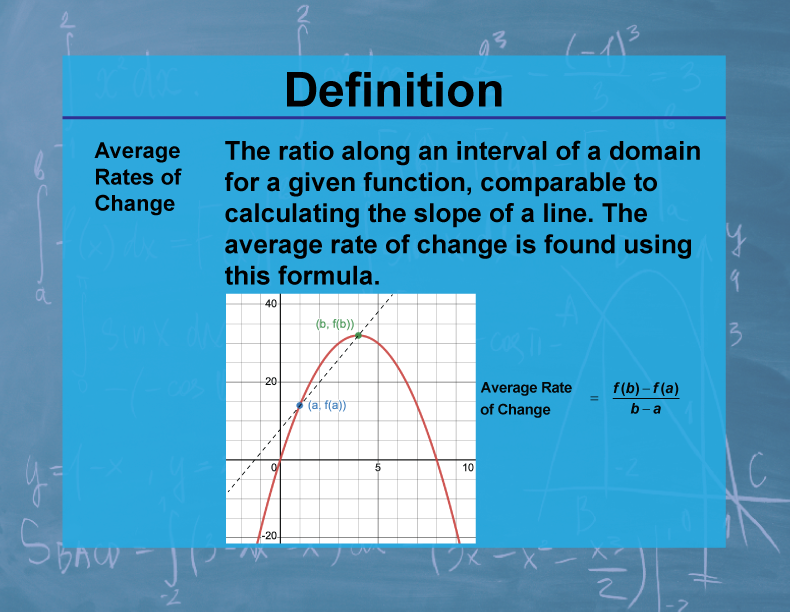
Display Title
Definition--Calculus Topics--Average Rates of Change
Display Title
Definition--Calculus Topics--Average Rates of Change

Topic
Calculus
Definition
The average rate of change of a function over an interval is the slope of the secant line connecting the endpoints of that interval on the function's graph.
Description
The average rate of change is a fundamental concept in calculus that bridges the gap between algebra and calculus. It provides insight into how a function's output changes relative to its input over a specific interval. This concept is crucial in various real-world applications, such as calculating average speed, growth rates, or productivity changes.
In mathematics education, understanding average rates of change helps students develop intuition about function behavior and prepares them for the concept of instantaneous rates of change and derivatives. It's an essential stepping stone for grasping more advanced calculus topics and their applications in physics, economics, and engineering.
Teacher's Script: "Let's consider a company's sales over time. If a company sold 100 units in January and 160 units in March, we can calculate the average rate of change in sales. The change in units is 60, and the time interval is 2 months. So, the average rate of change is 30 units per month. This tells us that, on average, the company's sales increased by 30 units each month between January and March. How might this information be useful for the company's planning?"

For a complete collection of terms related to Calculus click on this link: Calculus Vocabulary Collection.
| Common Core Standards | CCSS.MATH.CONTENT.HSF.IF.C.7, CCSS.MATH.CONTENT.HSF.BF.A.1.C |
|---|---|
| Grade Range | 11 - 12 |
| Curriculum Nodes |
Algebra • Advanced Topics in Algebra • Calculus Vocabulary |
| Copyright Year | 2023 |
| Keywords | calculus concepts, limits, derivatives, integrals, composite functions |